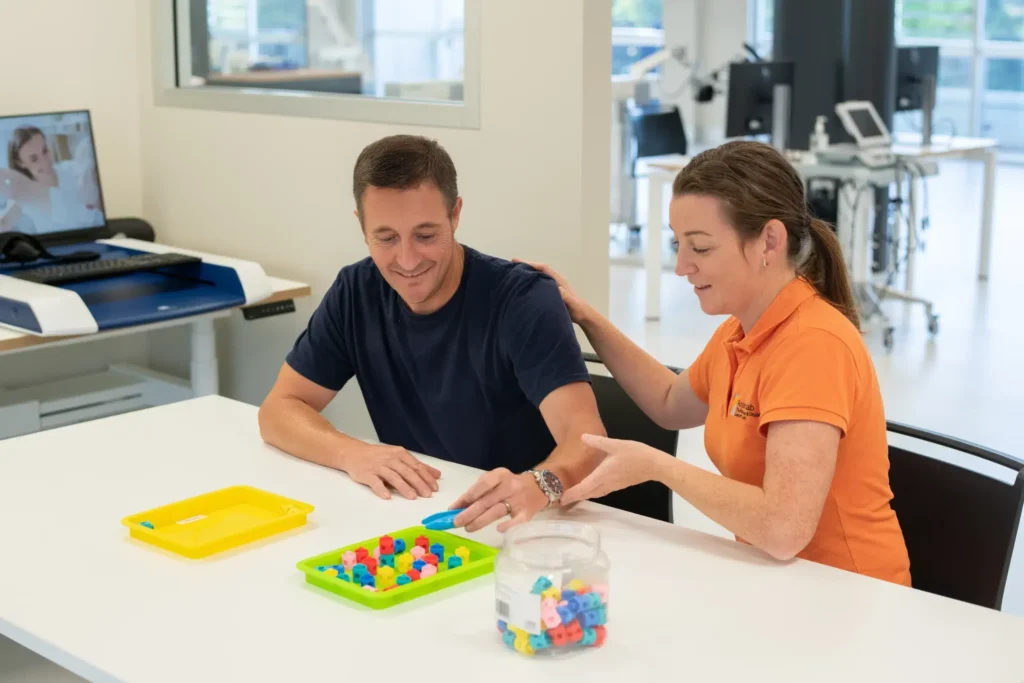The effects of a neurological event—such as a stroke, brain or spinal cord injury—or a condition like Parkinson’s, multiple sclerosis, motor neurone disease, or Guillain-Barré syndrome can be complex and different for everyone.
At Royal Rehab LifeWorks Brisbane, we take the time to understand your unique situation, your goals, and what matters most to you. Whether you’re working towards recovery or learning to adapt as your condition evolves, we’ll tailor a plan that supports your abilities, promotes independence, and helps you maintain the best possible quality of life.




